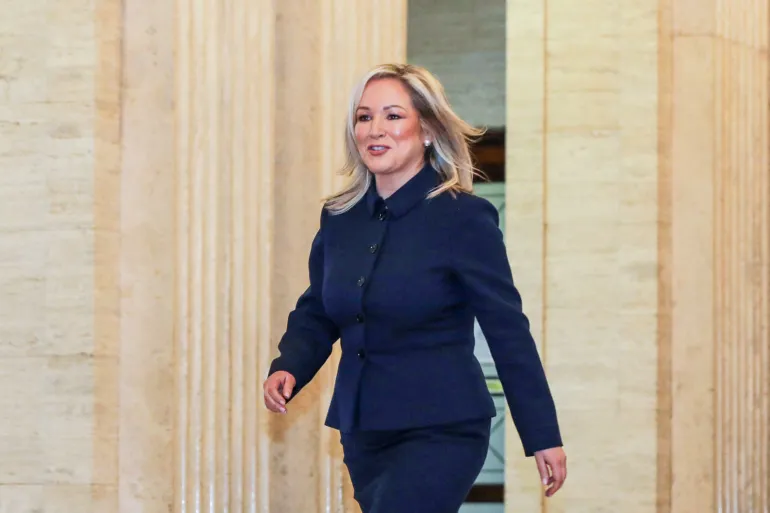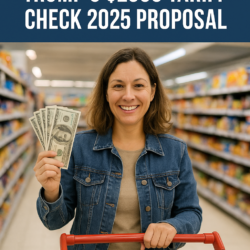Michelle O’Neill is the first person who wants Ireland to be united to become the leader, and this happens as the government starts working again after unionists avoided it for two years.

In Northern Ireland, something big happened on a Saturday – they appointed Michelle O’Neill as the First Minister, the first time an Irish nationalist got the job. This is a change from the usual pro-British leaders they’ve had for a hundred years. O’Neill’s appointment came after a significant 2022 election, showing that more people are supporting the Sinn Fein party, which wants a united Ireland.
The Democratic Unionist Party (DUP), who usually doesn’t get along with Sinn Fein, decided to join the power-sharing government again after a two-year break.
In her speech, Michelle O’Neill promised to be a First Minister for everyone, marking a new era along with Sinn Fein President Mary Lou McDonald. These leaders are not part of the old conflicts between Irish nationalists and pro-British unionists.
Sinn Fein used to be linked to the Irish Republican Army (IRA) and was not popular in politics for a long time. Now, they are the most liked party in the Irish republic before upcoming elections.
Emma Little-Pengelly from the DUP is taking the role of deputy First Minister. People are even wondering if there will ever be another leader from the unionist side.
Although there was tight security, the day went without any trouble. A few trade union members protested about how the government shutdown affected workers’ pay.
Even though Sinn Fein talks about unity, everyone in Northern Ireland is under pressure to deal with everyday problems after the two-year break strained public services. A vote on unity depends on the British government, and most people in polls want to stay part of the United Kingdom.
The two-year break might lead to changes in the rules for power-sharing, which has been stopped almost as much as it has been working since 1998. Irish and British leaders say they might change things once the local government is fully back, understanding that people want things to be different in Northern Ireland.
Days of second-class citizenship gone
“The days of being treated like second-class citizens are over,” said Michelle O’Neill, the first nationalist leader in Northern Ireland, a region initially established in 1921 as a unionist, Protestant-majority part of the UK. O’Neill, an Irish republican, emphasizes cooperation with colleagues of British, unionist tradition in the newly resumed government.
The government was on hold for two years after the Democratic Unionist Party (DUP) walked out over Brexit-related trade issues. O’Neill, representing Sinn Fein, will share power with DUP’s Emma Little-Pengelly, holding the more prestigious title as the first minister.
Former DUP leader Edwin Poots becomes the speaker, marking Sinn Fein’s return to government, exactly two years after the DUP’s boycott. The UK government recently agreed to changes, eliminating routine checks and paperwork for most goods entering Northern Ireland. The agreement reaffirms Northern Ireland’s status as part of the UK and grants local politicians oversight of potential EU laws.
The UK government will provide over £3 billion ($3.8bn) to support Northern Ireland’s public services. DUP leader Jeffrey Donaldson sees this as a positive change, respecting Northern Ireland’s place in the UK and its internal market.






